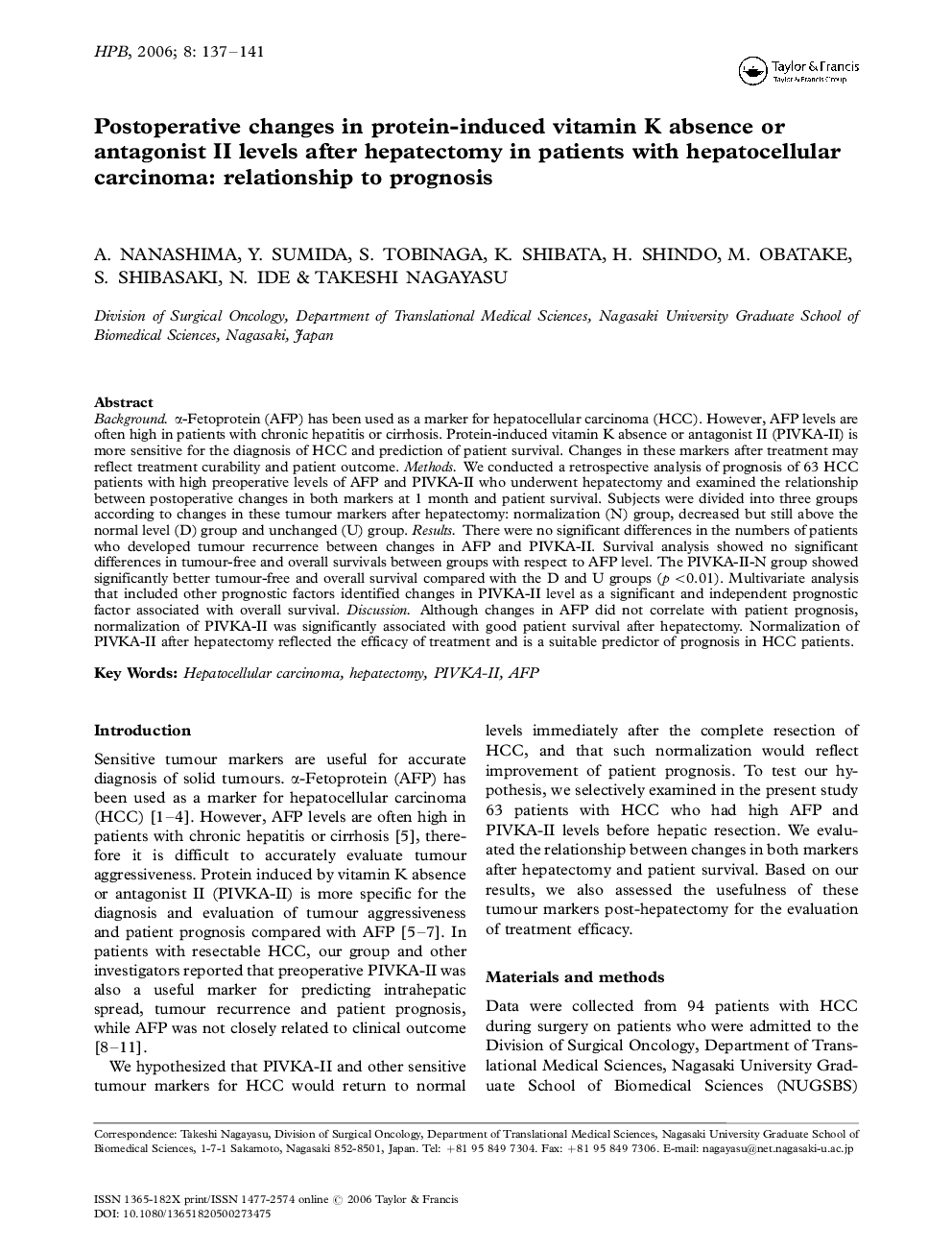| Article ID | Journal | Published Year | Pages | File Type |
|---|---|---|---|---|
| 3270025 | HPB | 2006 | 5 Pages |
Abstract
Background. αâFetoprotein (AFP) has been used as a marker for hepatocellular carcinoma (HCC). However, AFP levels are often high in patients with chronic hepatitis or cirrhosis. Proteinâinduced vitamin K absence or antagonist II (PIVKAâII) is more sensitive for the diagnosis of HCC and prediction of patient survival. Changes in these markers after treatment may reflect treatment curability and patient outcome. Methods. We conducted a retrospective analysis of prognosis of 63 HCC patients with high preoperative levels of AFP and PIVKAâII who underwent hepatectomy and examined the relationship between postoperative changes in both markers at 1 month and patient survival. Subjects were divided into three groups according to changes in these tumour markers after hepatectomy: normalization (N) group, decreased but still above the normal level (D) group and unchanged (U) group. Results. There were no significant differences in the numbers of patients who developed tumour recurrence between changes in AFP and PIVKAâII. Survival analysis showed no significant differences in tumourâfree and overall survivals between groups with respect to AFP level. The PIVKAâIIâN group showed significantly better tumourâfree and overall survival compared with the D and U groups (p<0.01). Multivariate analysis that included other prognostic factors identified changes in PIVKAâII level as a significant and independent prognostic factor associated with overall survival. Discussion. Although changes in AFP did not correlate with patient prognosis, normalization of PIVKAâII was significantly associated with good patient survival after hepatectomy. Normalization of PIVKAâII after hepatectomy reflected the efficacy of treatment and is a suitable predictor of prognosis in HCC patients.
Related Topics
Health Sciences
Medicine and Dentistry
Endocrinology, Diabetes and Metabolism
Authors
A. Nanashima, Y. Sumida, S. Tobinaga, K. Shibata, H. Shindo, M. Obatake, S. Shibasaki, N. Ide, Takeshi Nagayasu,
